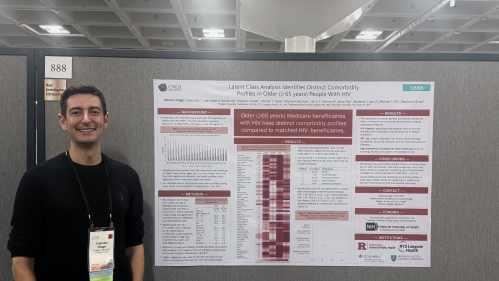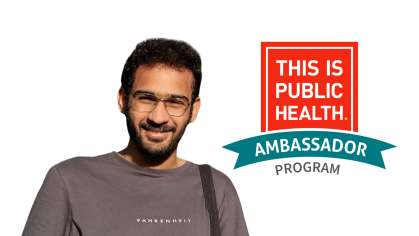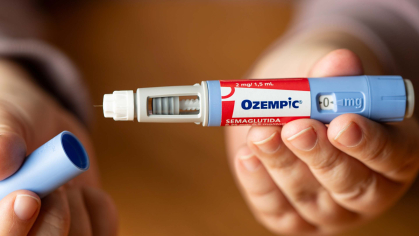Meet Fabrizio Drago, MPH, a PhD student at the Rutgers School of Public Health!
As the public health landscape continues to evolve, understanding the intersection of aging, chronic disease, and infectious conditions like HIV has never been more critical. Fabrizio Drago, MPH, a Doctor of Philosophy (PhD) student in the Department of Biostatistics and Epidemiology at the Rutgers School of Public Health, is tackling these complex issues through research that blends methodological rigor with a deep commitment to real-world impact.
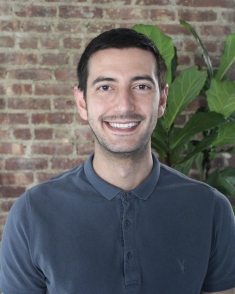
Last month, Drago presented his research at the Conference on Retroviruses and Opportunistic Infections (CROI), where he explored comorbidity phenotypes among aging adults living with HIV. We sat down with him as he shared what led him to pursue a PhD, how his research is evolving, and why community engagement remains central to his work and public health.
---
Can you tell us about your background and what led you to a degree and career in public health? Why did you decide to pursue a PhD with the Rutgers School of Public Health?
My background is in public health and spans multiple areas within this profession. Before joining the Rutgers School of Public Health PhD program, I worked in cancer research, pediatric epidemiology, and cardiovascular immunology. In each of these roles, I applied epidemiological and biostatistical methodologies to address a range of scientific questions, including investigating treatment adherence in breast cancer survivors, exploring the psychosocial and environmental factors influencing child development, and examining the role that immune cells play in cardiovascular diseases.
What tied all these experiences together was my interest in research methods to better understand and address complex health challenges. This passion ultimately led me to pursue a PhD, as I am eager to use epidemiological and biostatistical approaches to develop solutions that improve health outcomes.
I chose to join the Rutgers School of Public Health because of its strong emphasis on interdisciplinary research and its commitment to tackling real-world public health issues. Perhaps more importantly, I was drawn to the faculty, particularly my advisors, Dr. Stephanie Shiau and Dr. Henry Raymond, whose expertise and guidance have been invaluable as I advance in my doctoral studies.
Can you tell us about your research and what inspired you to focus on this area? How have your experiences within your program and with faculty at the Rutgers School of Public Health influenced your work?
Broadly speaking, my research focuses on identifying comorbidity phenotypes and their association with adverse clinical outcomes in aging adults. This focus has been heavily influenced by the PhD program, faculty, and fellow students at Rutgers.
Initially, due to my background in cardiovascular immunology, I was primarily focused on cardiovascular conditions. However, working closely with my advisors helped me recognize that aging adults living with HIV represent a growing population with many unanswered questions and unmet clinical needs. This insight challenged me to refine my research questions, expanding my focus beyond cardiovascular diseases to explore broader comorbidity phenotypes. This shift has opened new opportunities, such as working with large administrative claims datasets and delving deeper into advanced methodological analyses—experiences I might not have encountered otherwise. The support and mentorship I have received at Rutgers have been instrumental in shaping my work and pushing me to think critically about complex public health issues.
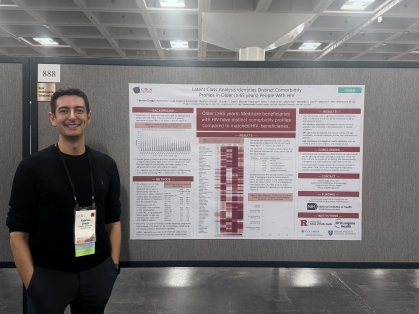
You recently presented at the Conference on Retroviruses and Opportunistic Infections (CROI)—what did you present, and how does it tie into your broader research goals? What were some key takeaways or insights you gained from attending and presenting at the conference?
In addition to the scientific knowledge I gained, one of the most significant takeaways from the conference was the reminder of the importance of community in the work we do. As researchers, it’s easy to get absorbed in the technical and scientific aspects of our work. However, this work would not be possible without the support and involvement of the communities we serve. This experience further emphasized how essential community engagement is to achieve meaningful and sustainable public health outcomes.
How do you envision your research impacting future public health practices or policies?
I envision my research contributing to public health practices and policies by enhancing our understanding of comorbidity phenotypes in aging adults, particularly those living with HIV. By identifying these patterns and their impact on health outcomes, I hope my work will contribute to the growing body of literature that can inform more targeted prevention and treatment strategies for this expanding and aging population.
